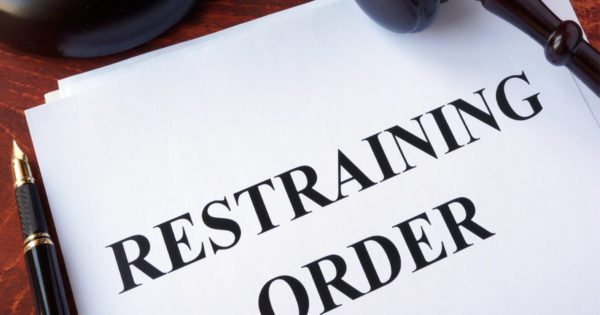Domestic Violence
Domestic violence describes crimes of violence committed by someone who has an intimate relationship with the victim. Also referred to as intimate partner violence, domestic violence includes victimization by current and former spouses or current and former dating partners. Millions of women and men are affected by domestic violence each year. All too often, domestic violence, as well as false allegations of domestic violence, surface when intimate relationships fall apart.
The legal system provides protections for victims of domestic violence, including restraining orders and other measures. However, the legal system may also be manipulated by vindictive parties who bring false allegations of domestic violence against a partner in order to gain an advantage in divorce or child custody proceedings. Victims of domestic violence, as well as those falsely accused of domestic violence, should seek experienced legal counsel to protect the rights, privacy, and security of all involved.
Who is Affected by Domestic Violence?
Anyone, regardless of race, gender, socioeconomic background, or marital status, can be a victim of domestic violence. Domestic violence may be committed by several types of individuals, including:
- A victim’s current or former spouse or intimate partner
- Someone with whom the victim shares a child in common
- A person who is cohabitating or has cohabitated with the victim as a spouse or intimate partner
Types of Domestic Violence
Domestic violence is not limited to physical abuse. It also includes other types of abusive behavior such as:
- Sexual abuse: Unwanted advances or any other forced sexual encounter such as rape, sexual assault, or harassment can constitute sexual abuse.
- Emotional abuse: This type of domestic violence includes name-calling, criticizing, or otherwise attacking the victim’s self-esteem.
- Economic abuse: This occurs when an abuser maintains complete control over the finances so that the victim is financially reliant upon the abuser.
- Psychological abuse: This often includes intimidation through threatening behavior, manipulation, or otherwise exerting power and control over the victim.
- Stalking/cyberstalking: This type of domestic violence includes repeatedly calling, emailing, or spying on someone.
New Jersey Domestic Violence Law
The New Jersey Prevention of Domestic Violence Act (PDVA) applies to anyone over the age of 18 who is being subject to domestic abuse. The PDVA lists crimes that are prohibited and may be the subject of criminal prosecution:
- Assault
- Burglary
- Contempt of domestic violence order
- Criminal mischief
- Criminal restraint
- Criminal sexual contact
- Criminal trespass
- Cyber harassment
- False imprisonment
- Harassment
- Homicide
- Kidnapping
- Lewdness
- Robbery
- Sexual assault
- Stalking
- Terroristic threats
There are several legal protections available for victims under the PDVA, including the Address Confidentiality Program, which allows victims to have their mail forwarded from a substitute address, typically a post office box. Victims may also file a civil suit to recover damages, such as medical bills and pain and suffering. If children are involved, victims may seek assistance from a qualified attorney in finding a haven for themselves, as well as their children, and file a restraining order against the abuser.
How to Obtain a Restraining Order in New Jersey Victims of domestic violence in New Jersey may file a restraining order to prohibit their abusers from contacting them. The restraining order must be filed in family court, along with an account of the incident and any evidence. There are two types of restraining orders in New Jersey:
- Temporary Restraining Order: This is issued temporarily, in emergency situations, until a court hearing can be held on the matter. The parties will be notified of the date that the full hearing will be held to determine whether a final restraining order should be issued.
- Final Restraining Order: At the hearing, evidence of the alleged domestic violence must be presented, and the court will determine whether a restraining order should be granted. This type of restraining order will typically protect victims from future contact from their abusers, allow victims to modify their custody, visitation, and support agreements, and regain possession of personal property items.

Stockton Family Law helps domestic violence victims obtain a restraining order.
Restraining orders may specifically address which conduct is prohibited, such as the distance that the defendant must maintain from the victim, places where the defendant may not be present, and the ways in which the defendant is not allowed to contact the victim; typically in person, over the phone, or through email. Depending on the circumstances of the case and the defendant’s prior history of domestic violence, penalties for violating a restraining order include being arrested and possible jail time.
False Allegations of Domestic Violence
When an intimate relationship disintegrates, emotions can run high, causing some to make decisions based on anger or spite. One party may seek to game the legal system by making unsubstantiated claims of domestic abuse. For example, the accuser may want to obtain sole custody of any children involved, or permanently damage the reputation of the accused. It is very important for anyone falsely accused to act quickly and seek legal counsel in order to gain the best possible outcome for the family.
Consequences of Domestic Violence Allegations
An allegation of domestic violence may result in civil consequences, such as a restraining order. Criminal charges may also result if the person is accused of assault and battery. The following are some of the serious consequences of being found guilty of domestic violence:
- Loss of access to the family home
- Restricted child visitation rights
- Reputation damage
- Requirement to attend anger management treatment
- Loss of certain work privileges, such as the right to bear arms
- Potential fines or jail time
Clearly, the stakes are high for anyone falsely accused of domestic violence. The effects may permanently harm family relationships or even result in a criminal record. An experienced lawyer can help those falsely accused by crafting a legal defense strategy to protect the future of all involved.
If you have questions related to domestic violence, contact Stockton Family Law today to speak with a compassionate and dedicated South Jersey family law attorney. Complete our online contact form or call us at 856-412-5052 today to arrange a confidential consultation. Located in Moorestown, New Jersey, we serve clients from the surrounding areas.





